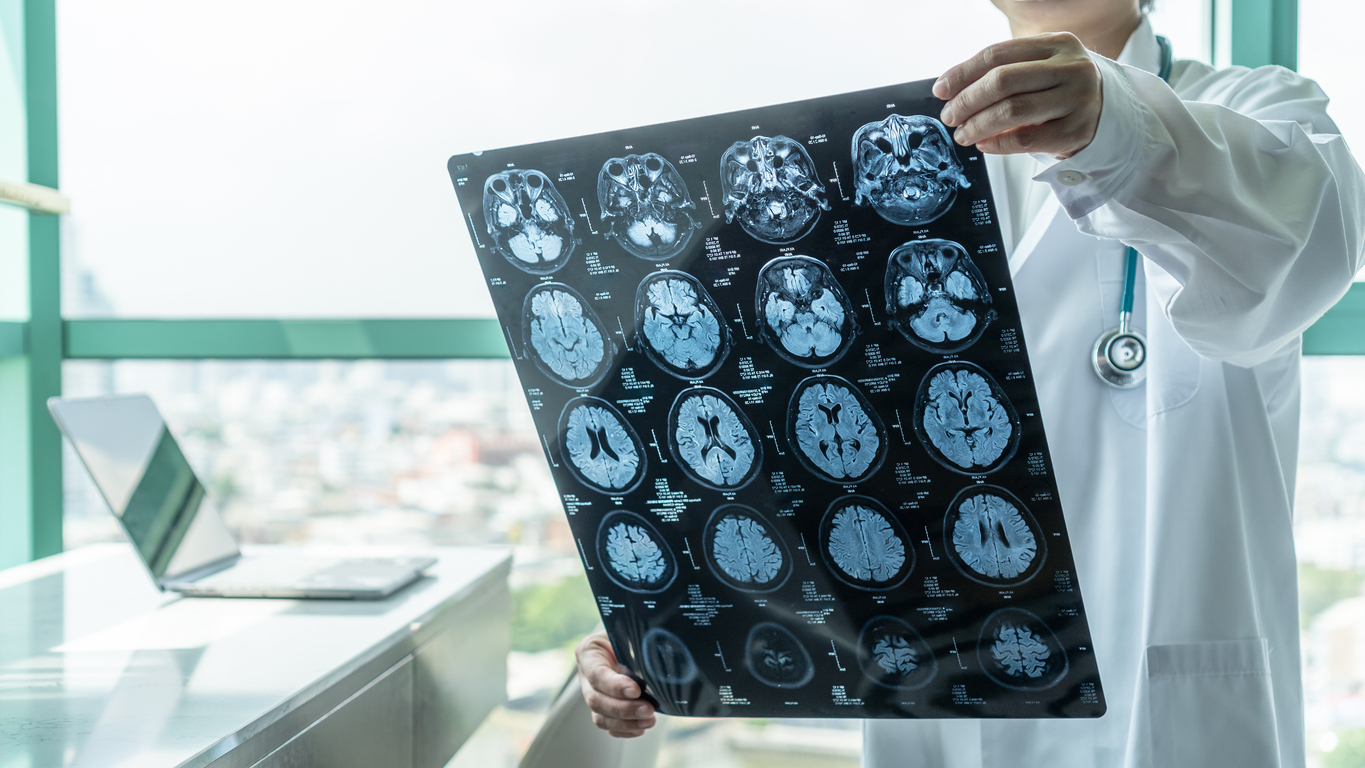Symptoms of Brain Bleed After a Head Injury
Bill Allen | November 10, 2023 | Brain Injuries

Regardless of the cause, head trauma should be taken seriously. According to the CDC, head injuries result in about 1.5 million traumatic brain injuries (TBIs) each year. Among those who sustain a TBI, more than 50,000 lose their lives.
Even for those who survive, many TBIs result in major issues such as bleeding in the brain, which can cause a buildup of pressure and oxygen loss. Knowing whether you may have a brain bleed is important. Understanding the causes and symptoms can help you get timely and necessary treatment before your condition worsens.
What Is a Brain Bleed, and How Does It Occur?
A brain bleed (intracranial hemorrhage) is defined as any bleeding that happens inside of your head. However, these injuries are much more complex than they sound. For instance, there are multiple types of brain bleeds, and the symptoms and severity of each one often change based on the injury’s location.
Broadly, brain bleeds occur in two different areas: between the skull and brain tissue and inside of the brain tissue itself. There are three membrane layers that fall between your skull and your brain tissue.
Brain bleeds that occur in these protective membrane layers are referred to as:
- Epidural Bleeds: Occur between the skull bone and dura mater (outermost layer)
- Subdural Bleeds: Occur between the dura mater and the arachnoid membrane (middle layer)
- Subarachnoid Bleeds: Occur between the arachnoid membrane and the pia mater (innermost layer)
Two types of bleeding can occur inside the brain tissue itself. The first is an intracerebral hemorrhage. Often called a hemorrhagic stroke, it occurs in the lobes, pons, and cerebellum. The second is an intraventricular hemorrhage, which occurs in the ventricles of the brain.
Brain bleeds can happen for a number of reasons, including:
- High blood pressure
- Atherosclerosis
- Blood clots
- Brain tumors
- Smoking
You can also experience a brain bleed following head trauma incurred due to a fall, assault, sports injury, or car accident.
Symptoms of a Brain Bleed After Hitting Your Head
The brain relies on blood flowing through blood vessels to get oxygen. If a brain bleed causes these vessels to burst or leak, oxygen cannot make it to the brain, and brain damage can occur as a result. Further damage can happen when pooling blood due to the hemorrhage causes excess pressure in the brain, which causes even more oxygen deprivation.
Internal bleeding, pressure buildup, and oxygen deprivation do not usually cause external symptoms. Still, even internal symptoms can be hard to detect because they may not occur until hours or days later.
It’s important to know you may experience the following symptoms of a brain bleed after hitting your head:
- Severe headaches
- Sudden weakness, numbness, or tingling
- Paralysis on one side of the body
- Dizziness or lightheadedness
- Loss of balance or coordination
- Difficulty swallowing
- Seizures
- Loss of vision
- Slurred speech
- Lack of energy or alertness
- High heart rate or breathing trouble
- Confusion or comprehension difficulties
- Changes in consciousness
Do you have symptoms of a brain bleed after a fall or head injury experience? If so, it’s important to see a medical professional right away, as time is of the essence. Your urgency can make the difference between life and death.
Brain Bleed Recovery Is Always Personal
Death is not the only possible outcome of a brain bleed after a head injury. A person may also experience a coma or be in a vegetative state in which they are unconscious but have limited interaction with the world.
If a person makes it through these stages, there is usually a long — often lifelong — road to recovery. The process frequently includes rehabilitation and adjusting to life with physical, sensory, emotional, and cognitive issues.
All brain bleed patients must follow their doctors’ advice. The road to recovery may be difficult and will depend heavily on a person’s personal circumstances. However, maintaining care and following instructions is crucial. In fact, it can be the very thing that saves a life.
Contact Our Gainesville Personal Injury Law Firm in North Central Florida
If you need legal assistance, contact the Gainesville personal injury lawyers at Allen Law Accident & Injury Lawyers at your nearest location to schedule a free consultation today.
We have three convenient locations in North Central Florida:
Allen Law Accident & Injury Lawyers – Gainesville office
2550 SW 76th St #150
Gainesville, FL 32608
(877) 255-3652
Allen Law Accident & Injury Lawyers – Downtown Gainesville
621 W University Ave
Gainesville, FL 32601
(866) 928-6292
Allen Law Accident & Injury Lawyers – Ocala Office
112 S Pine Ave
Ocala, FL 34471
(352) 351-3258

